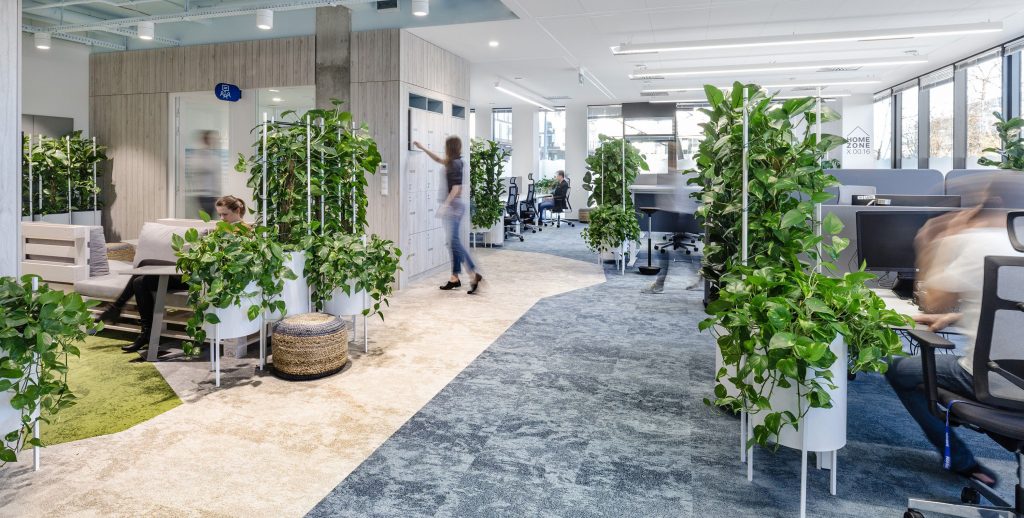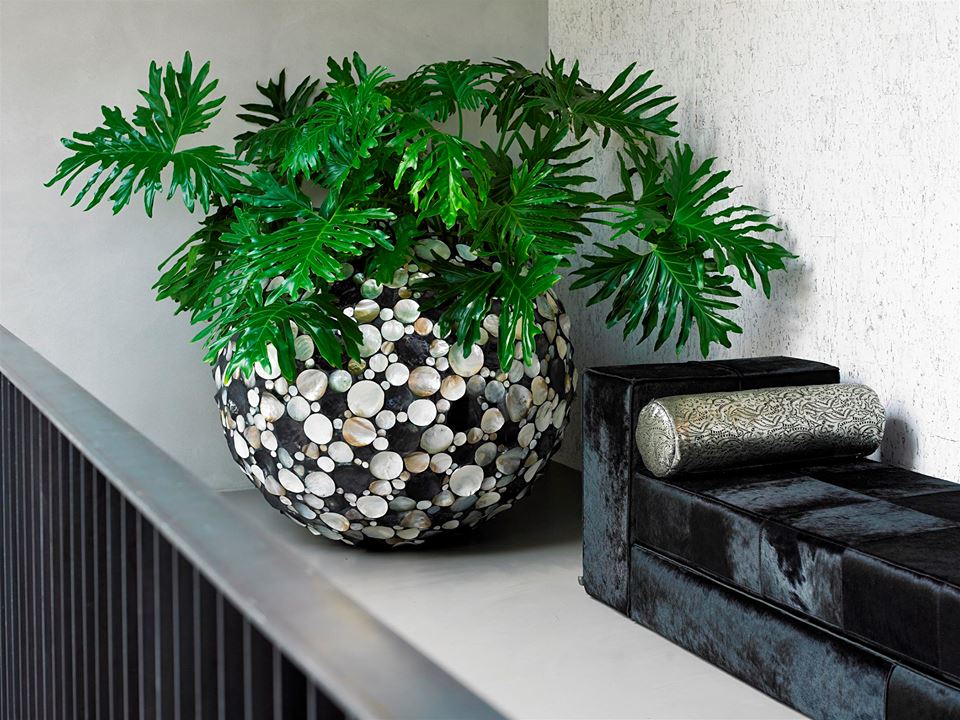
Could raising indoor air humidity by using plants help prevent the spread of COVID-19? Some scientists now think so. Photo: Daria Shevtsova / Pexels
Are you a little anxious about returning to the office? You aren’t alone. Several polls show people worry about being exposed to the coronavirus when they go back to the workplace. Depending on the poll, 60 to 75 percent of people surveyed say they’re worried about this, and worried about being exposed by their co-workers.
It’s enough to make a person want to work from home forever. But this isn’t always possible or even a good idea long term.
We understand how much a healthy workspace can make a difference at Good Earth Plant Company. We have been working with clients to improve the health and wellbeing of their employees and visitors in all kinds of indoor spaces for more than four decades! We help create inviting spaces where people feel comfortable and welcome by using the power of plants and other natural elements.
It’s also good for the bottom line. Concerns about indoor air quality have troubled people for a long time, long before COVID-19 showed up. Indoor air can be far more polluted than outdoor air. Air quality and air circulation can vary widely. Sitting in the typical office environment, you can be breathing in toxins called volatile organic compounds or VOCs. If you ever feel sluggish or fuzzy-headed at work, it’s not always a caffeine crash. It’s the VOCs messing with your head.
Plants can provide a simple and effective solution to cleaning up indoor air by filtering toxins through the photosynthesis process, taking in CO2 and toxins in, and delivering clean oxygen out. If you’ve been reading our blog over the years, you already know this. (LINK)
Today, Good Earth Plants has been brainstorming different solutions to the socially distanced workplace such as mobile plant walls and mobile moss walls, and the creative use of plants and containers as screens and dividers.

Adding plants to the workplace can go a long way toward improving indoor air quality.
What does this have to do with COVID-19? We know from medical science this virus spreads in large part through airborne transmission. Someone who is infected sends the virus out from coughing, talking, or even breathing through the air, and you breathe it in unless you protect yourself through masks or social distancing.
But it’s turning out we might also be able to help protect people from becoming infected by COVID-19 by paying more attention to indoor air quality in general. It turns out humidity can make a big difference.
The Centers for Disease Control, World Health Organization, and Environmental Protection Agency all recommend that indoor humidity should be kept at between 40 and 60 percent. Why?
Without enough moisture, your sinuses, throat, and skin dry out – and it increases your risk of becoming ill with a cold or the influenza virus, which lives in the air and on surfaces just like the coronavirus. Humidity between 40 and 60 percent is the least friendly to the flu virus. It increases and is more contagious at lower humidity. This isn’t good news in drier climates like San Diego, and in dry indoor air where we spend 90 percent of the average day.
Some smart scientists have studied the connection between humidity and infection rates at hospitals. Harvard University researcher Stephanie Taylor has found through multiple studies that infection rates in hospital rooms go up when humidity drops, and the same thing happens in nursing homes. Your respiratory immune system works best in moderately high humidity.

Plants in the workplace scrub the air of carbon dioxide and toxins while adding oxygen and healthy humidity.
Taylor says humidity in the ideal 40 to 60 percent range stops airborne viruses and other pathogens from spreading. First, droplets with viruses fall to the ground more quickly in higher humidity – they just don’t travel as far. They also don’t dry out to become smaller droplets, which can float in the air longer. It also seems viruses aren’t as infectious when they float through moister air. Scientists aren’t sure exactly why.
The final reason is that your respiratory immune system just works better in greater humidity. Moisture in the air helps you fight off viral infection.
One thing plants are exceptionally good at is raising indoor humidity levels. While no one is claiming humidity will protect you from COVID-19, better air quality CAN help strengthen your immune system as much as possible. Most of us would be thrilled to get through the fall and winter seasons without the annual cold at least.
Consider adding Nature’s perfect humidifiers to your indoor spaces. Plants scrub the air and add humidity. They don’t need any electricity and they don’t need to be cleaned regularly like mechanical humidifiers. All they ask is some light, moisture and minimal care.
We’re working with biofiltration living walls – they are the best form of “plant air cleaner” and they’re incredibly effective in raising indoor humidity. We have both large entire wall versions and smaller “plug and play” styles.
Interested in learning more? Talk to me! We enrich people’s lives with plants. Give us a call at 858-576-9300 or email me at jim@goodearthplants.com


